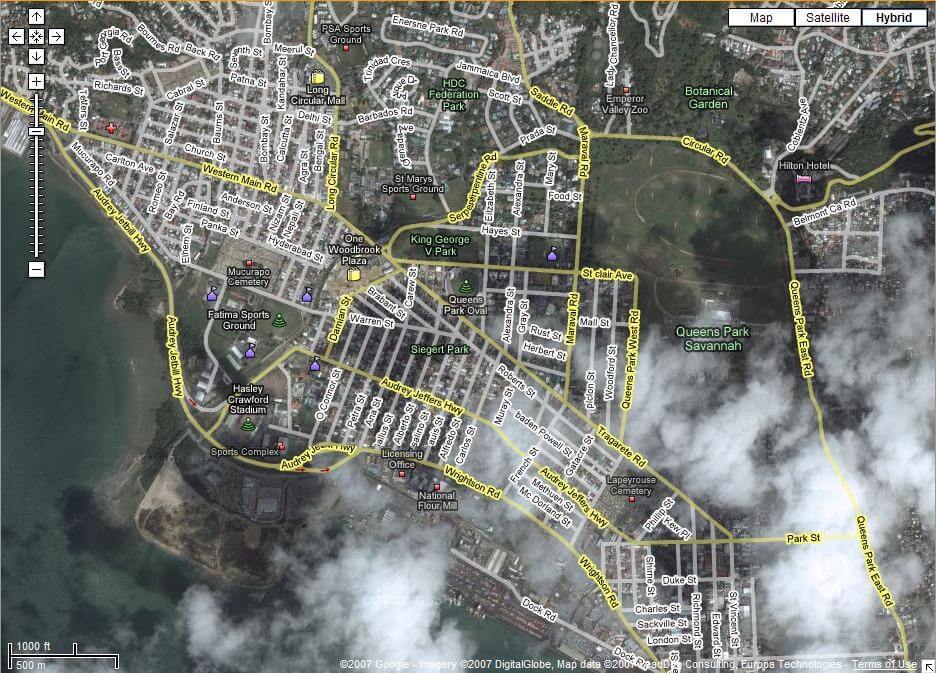Why it matters: Should an app developer have to get a surveying license to create a program that places boundary lines on a satellite image using only information that is already available to the public? Mississippi apparently thinks so and is suing a tech startup to prove it.
Mississippi's Board of Licensure for Professional Engineers and Surveyors is suing Vizaline, LLC, a startup providing a risk-management tool to banks, for practicing "unlicensed surveying." The firm has filed a countersuit claiming "that the board violated its First Amendment right to convey information to willing customers."
In 2014, retired banker Brent Melton and GEO-Spatial and remote sensing expert Scott Dow formed a company called Vizaline and released an app called "Viza-Plat" that allows banks to assess loan risk by plotting lines over satellite imagery. The program uses public information to create an outline of the property that banks can look at to see if there is any need for further action to "resolve any discrepancies in the legal description" of the property.
"Using public data to draw lines on satellite photos is not surveying, it's free speech," Institute for Justice (IJ) Senior Attorney Paul Avelar told TechSpot via email. "You don't need the government's permission to use existing information to create new information and sell it to willing customers."
The board contends that since Viza-Plat is capable of creating survey maps from public information, Vizaline needs a survey license to operate. It further demands that the company and its founders "immediately disgorge themselves" of any revenue they earned in Mississippi and return collected fees to its customers. This would effectively bankrupt the firm.
"The government shouldn't force me to return all the money my clients paid when they are perfectly satisfied with our services," said co-founder Brent Melton. "I just want to protect my right to provide my customers with valuable information to help their businesses."
According to IJ, the suit against Melton and Vizaline is just one in a "nationwide trend" of bureaucratic obstructionism that hinders free speech. Steve Cooksey, a paleo-diet blogger, was ordered to cease providing dietary advice online by the North Carolina Board of Dietetics/Nutrition in 2011. In 2013, family psychologist John Rosemond was sued by the Kentucky Board of Examiners of Psychology for "unlicensed practice of psychology because of advice published in his nationally-syndicated newspaper column."
Indeed, just last year we reported on how the Oregon Oregon State Board of Examiners for Engineering and Land Surveying fined retired engineer Mats Järlström $500 for merely describing himself as an engineer in an opinion submitted to the board. It contended that since Järlström was not licensed to practice engineering in Oregon, he had no right to refer to himself as an engineer in the submitted documentation. He defeated the bureau in federal court.
"This is just the latest example of a licensing board needlessly expanding its authority to hinder new competition," said Johanna Talcott, an attorney with the Institute for Justice. "The government should step out of the way and allow an innovative business like Vizaline to continue serving its customers."
We reached out to the Mississippi board for comment but have not heard back. We will update you if it chooses to respond.

